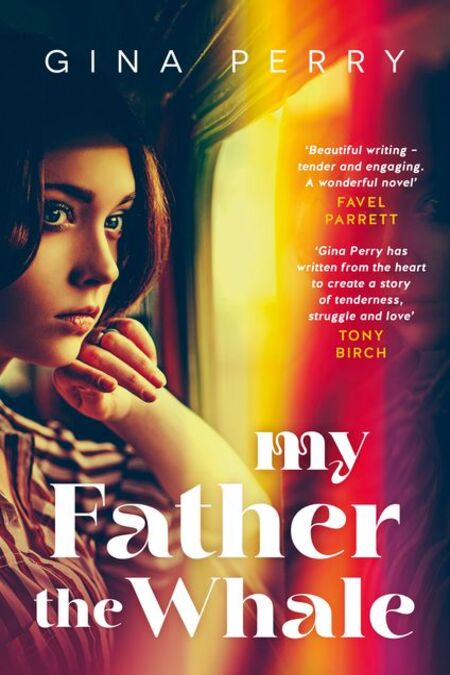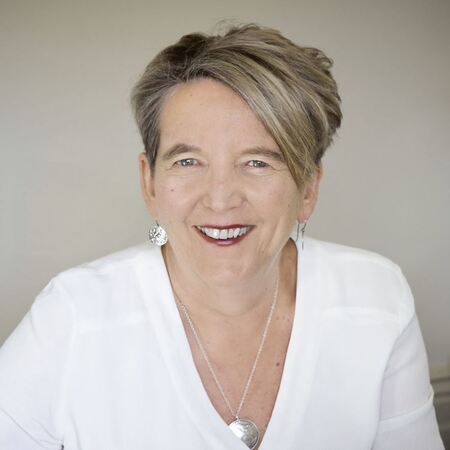(courtesy Harper Collins Publishers Australia)
There is a power in confronting past hurts and grief but understandably doing so can send seismic shocks through our life that have no guarantee of a happy ending when all the agonising dust has settled.
That’s the stark truth that confronts Ruby in My Father the Whale by Gina Perry, when, after 16 years of separation, her father Mitch breezes back into town, still unwilling to talk about her mother whose very existence is a taboo topic under tight lock and key and unable to fully articulate why he was unable to be the regular, dependable kind of dad she needed him to be.
With a title that owes a thematic debt of gratitude to Captain Ahab and the giant white sperm whale that he vengefully seeks, My Father the Whale beautifully and powerfully explores in a wonderfully laidback Australian way what it is like to have your past come rushing back with no preamble in your present, leaving you scrambling to adjust to an interrupted reality and unable at first to find a bridge between two quite disparate parts of your life.
The book begins in 1984 with Mitch and Ruby, then 11, travelling across Australia, except mysteriously Victoria which they never ever enter for reasons never made clear, earning a precarious and sporadic living entering talent shows at rodeos and living off their winnings.
They drove through town and Mitch turned onto the highway, then slowed and pulled into a Shell service station on the edge of town. The Kombi filled with the smell of petrol. She heard the tick-tick as the litres clicked over, faster and faster, filling the tank; no need for starting and stopping the bowser so it matched the amount of money they had left. They had fine hundred dollars. Money to burn. But the envelope thick with notes didn’t cheer her up like it should have.
It’s by no means a normal life, something which Ruby suspects but isn’t entirely sure about until the Kombi van in which they travel and live breaks down in a small coastal town near Byron Bay, and she’s finally able to go to school, make friends and do the sorts of things girls her age routinely do but which up until now were denied Ruby due to her peripatetic existence.
While Mitch rails about holding down a job – he is manifestly and volubly opposed to being part of the establishment in any way whether that’s holding down regular employment, having a house or doing any of the other markers of normal suburban life – and struggles to get the $2000 needed to repair the Kombi, Ruby makes a bestie, gets used to regular education at school and finds herself loving the feeling of belonging and being anchored to one spot.
It seems that fate and circumstance may have finally given Ruby what Mitch’s constant running from his demons has denied her, but when Mitch is finally able to hit the road, he doesn’t stop to consider what might be best for Ruby and simply demands she hit the road with him again.
But Ruby doesn’t want and not does the family of her best friend who offer to look after her while Mitch goes off to do whatever his restlessly grieving spirit impels him to.
Mitch isn’t happy but as the 1984 period of My Father the Whale ends, he relents and Ruby stays behind, hoping her dad will come back and visit and keep in contact and she can have both him and her new, settled world.
(courtesy official author site)
But that’s not what happens and 16 years later at the age of 27, Ruby is an aspiring painter who earns a living working for a whale watching company and revelling in being known and loved in a town which has well and truly become her home.
There’s still an ache from Mitch’s absence and a pile of unanswered questions about her mother, but some tragedy aside, Ruby is happy with where she’s at though she does seem emotionally hobbled to some extent by a past which, though far behind, never quite leaves her.
But then Mitch comes in from nowhere, doing many of the things he once decried and Ruby, angry that he seems unaware of the damage he did to her, grapples with how she’s going to reconcile who she has become with who she was way back when.
Exploring themes of found family and how past secrets never really stay in their small pocket of time, My Father the Whale is a lushly affecting book that wonders how it is we find ourselves when some of the pieces are missing and no one seems to want to help us to find them.
Ruby is a compelling protagonist, someone who loves her father despite his many shortcomings – he loves her but only insofar as it doesn’t interrupt his own ceaseless quest to keep his grief-strewn past bay – and who simply wants a family and a place to call home.
Fiona was right that Ruby was too alert. And each rejection was made more painful because it confirmed her own deep belief. She was the girl whose father abandoned her, and never came back. She felt the realisation like a jab in the ribs, and took a moment to catch her breath in the steamy air. Then she rubbed at the mirror until her face emerged: sharp-edged, determined.
That she finds it is wonderful but that she finds it without Mitch is something that continues eats at her and which causes a rent in her soul that she can never quite heal despite her best efforts.
Told with a quiet beauty, abundant empathy and a strong sense of the power of belonging and of being unconditionally loved, My Father the Whale is the sort of novel that wonders about how childhood trauma informs us as adults and if there is any meaningful way to really make headway through that pain and make peace with your past.
That’s Ruby’s great and enduring challenge in the final half of the novel which even in its final scenes doesn’t act as if life ever folds itself neatly into a pretty bow.
Sure, it acknowledges that healing is possible and that if people are open to it that we can make accommodation with the past that shaped our present, but it’s not an easy journey and might involve a great deal more short term pain and disruption that we bargained on.
My Father the Whale is profoundly beautiful and affecting book that, written in a way that both earthy and heartfelt and insightful, really dives deep into what it’s like to have our past come crashing inelegantly and without warning into the present and how change is possible and healing can happen but only when those who hurt us, even inadvertently, are willing to part with their secrets, make the past an open book and finally let us walk into a present unencumbered by pain and well and truly ready, however tentatively, for what comes next.

